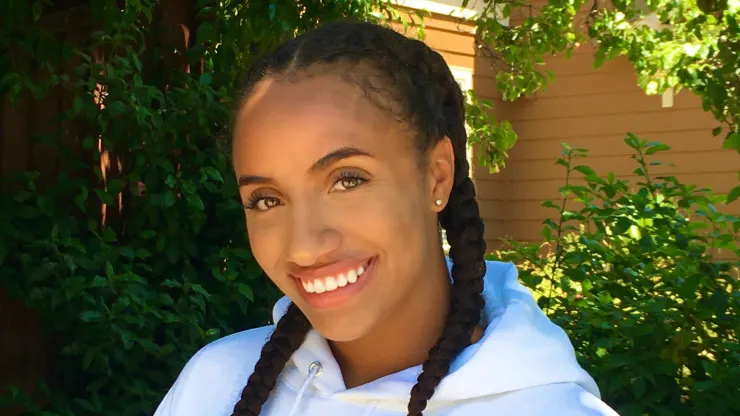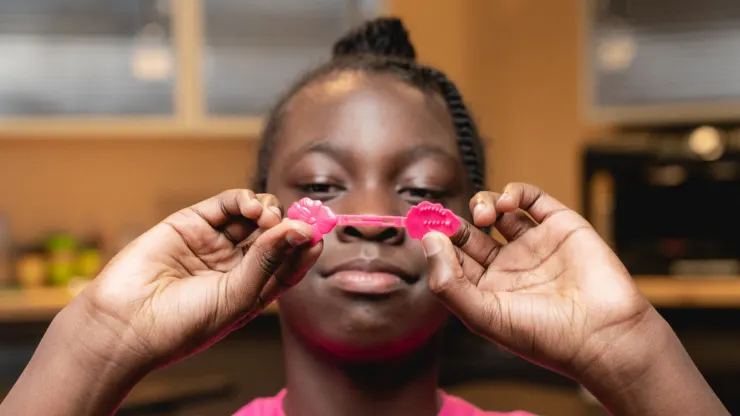According to Lazetta Braxton, a certified financial planner and CNBC contributor, now is an excellent time for African Americans to start their own businesses. Braxton, co-founder and co-CEO of 2050 Wealth Partners, advises aspiring young Black entrepreneurs to step out of their comfort zones, expand their networks, participate in pitch competitions to secure funding, hire professionals who understand the financial aspects, and most importantly, remain passionate about their ventures.
Gabby Goodwin, Rachel Holmes, and Christon Jones exemplify these principles. They share several common traits: they are young, Black, and became business owners before the age of 20.
In recognition of Juneteenth, CNBC + Acorns Invest in You: Ready. Set. Grow. is spotlighting Black entrepreneurship as a route to financial freedom. Here is advice from these three young Black entrepreneurs on achieving early success and overcoming obstacles: find a problem to solve, and continuously seek out new ones.
Find a problem to solve, keep finding new ones
At just seven years old, Gabby Goodwin set out to solve the common problem of constantly losing barrettes. She invented and patented the first double-face, double-snap barrette, and launched her business, GaBBY Bows, in 2014. Now at 15, Goodwin has expanded from selling barrettes to becoming the CEO of Confidence, a company that offers natural hair-care products.
“We noticed that many of our customers were not only struggling with losing barrettes but also with tangling and finding products that help their children’s scalp and maintain moisture in their hair,” said Goodwin. “In business, it’s important to solve problems and continue addressing needs. By listening to our customers, we grew from just bows to Confidence.”
Her business has also expanded its physical presence. In 2021, after seven years of operating from home, Gabby and her family opened a retail store and hair salon in Columbia, South Carolina, where they sell all of her products.
“We wanted to ensure a comprehensive experience for the girls who visit us—not just getting their hair done and boosting their self-confidence, but also seeing the behind-the-scenes operations and our inventory,” said Gabby.
The path to success was challenging.
“We faced a double hurdle because we belong to two minority groups—we’re African American and we’re females. When I sought funding for my business, I often wasn’t taken seriously because of my age, race, and gender. I found myself presenting my hair products for curly-haired Black girls to white, bald men. It was incredibly difficult to convey what my business does, how it works, and how they could support its growth,” she explained.
Gabby, who co-created the Mommy and Me Entrepreneurship Academy with her mother to help young girls and their moms start their own businesses under her brand, emphasizes the importance of finding a support network early on.
“Build a village around you. I’ve had tremendous support from my city mayor and others in government, as well as from residents in my city. Surround yourself with family and friends. You never know how someone might become involved in your business,” she advised.
Don’t be afraid of setbacks

Brianna Holmes
In addition to juggling school, a social life, and competing as an artistic swimmer, 18-year-old Rachel Holmes is the CEO of Black Girls Mean Business. This free, nationwide virtual summer business program for Black high school girls offers six Zoom workshops designed to enhance business and career skills, expand networks, and prepare participants for life after high school.
“As an aspiring businesswoman myself, I understood the barriers Black women face in business and wanted to ensure that Black girls in my community have the support and resources necessary to reach their full potential,” said Holmes.
“Black women face significant discrimination in business, stemming from both racism and sexism. They are often underestimated, which denies them the respect, positions, and funding they deserve. I wanted to provide equity to help girls overcome these obstacles. By giving them the tools they need to be successful early on and empowering them, I hope to see more representation in executive positions and entrepreneurship,” she explained.
Holmes believes that being a young Black entrepreneur not only sets her up for success but also inspires others. “It can be daunting at times, knowing that you will face barriers and that people are watching what you do. But it’s amazing to know I can make a difference and set an example. Representation matters!” she said.
Her advice for aspiring young Black entrepreneurs is to embrace setbacks as opportunities for improvement. “Don’t be afraid of setbacks. Use them as opportunities to improve next time. Ask for help, even if you think you don’t need it. You got this! People will support what you are doing; you just have to have the courage to get started,” she encouraged.
Patience is critical for business success

Antoinne Duane Jones Media
At just 15, Christon “The Truth” Jones holds titles such as CEO, day trader, investor, and author. Jones launched his business, Return On Investment, when he was only 10. The company offers three programs—$tocks 101, Black Wealth Matters, and The Truth Success Series—that teach Black entrepreneurs how to begin investing and trading, understand the stock market, and create both short- and long-term passive income.
More recently, Jones has developed an interest in real estate investing. He currently owns two properties and aims to own 10 or more within the next five years.
“I was always looking for new ways to make money,” Jones said. “I became really interested in the topic and started asking my mentors and people around me to teach me and explain how the business works,” he added.
Jones acknowledges that overcoming age and race discrimination has been one of his toughest challenges. “At networking events, I often faced discrimination and struggled to connect with people who didn’t take me seriously because I’m a young Black kid,” he said.
Key ingredients to his success and overcoming obstacles include consistency, creativity, self-discipline, taking action, and, most importantly, patience. “Patience is probably one of the biggest things I’ve learned,” Jones said. “When you first start entrepreneurship, you want to rush everything—you want to make money, become famous, and build connections quickly. But the journey is much slower,” he added.






